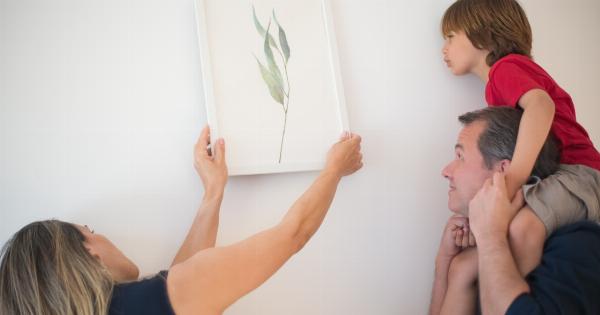Confidence is a vital aspect of healthy sexual relationships. It enables individuals to express themselves freely and without inhibition. However, it is a common belief that men are more confident in the bedroom than women.
This notion can be traced back to cultural and societal beliefs that have placed gender stereotypes on both men and women. This article sets out to determine who is really more confident between men and women when it comes to sexual matters.
Factors that Affect Confidence in the Bedroom
A person’s level of confidence in the bedroom can be influenced by various factors, including:.
- Self-esteem
- Societal beliefs and stigma surrounding sexual matters
- Experience and sexual history
- Personal beliefs about sex
- Communication skills
Self-Esteem
Self-esteem is the overall opinion a person has about themselves. Low self-esteem can negatively affect an individual’s confidence in the bedroom. It may lead to feelings of inadequacy, anxiety, and fear of rejection.
Therefore, someone with low self-esteem may not feel confident in expressing their desires or needs in the bedroom.
Both men and women can experience low self-esteem, and this can impact their level of confidence in the bedroom. Therefore, it is not fair to assume that either gender is inherently more confident than the other.
Societal Beliefs and Stigma
Society often places unfair expectations on both men and women regarding sexual matters. Men are pressured to be sexually active, aggressive, and confident, while women are expected to be submissive and less interested in sex.
These expectations can lead to pressure, anxiety, and negative perceptions of sex.
As a result, men may feel the need to “perform” to meet societal expectations, while women may feel the need to suppress their desires to meet societal expectations.
Therefore, societal beliefs and stigma may limit both men and women’s confidence in the bedroom.
Experience and Sexual History
Experience and sexual history play a critical role in shaping an individual’s level of confidence in the bedroom.
The more sexually experienced a person is, the more likely they are to feel confident in expressing their desires and needs in the bedroom.
However, sexual history and experience can also negatively impact a person’s confidence in the bedroom. Negative sexual experiences, such as rejection or trauma, can lead to feelings of inadequacy, anxiety, and fear.
These feelings can limit someone’s confidence in future sexual encounters.
Personal Beliefs About Sex
Personal beliefs about sex can also influence a person’s level of confidence in the bedroom. Someone who has positive beliefs about sex is more likely to feel confident and comfortable in expressing their sexual desires and needs.
Conversely, someone with negative beliefs about sex may experience feelings of shame, guilt, or fear. These feelings can limit their ability to feel comfortable expressing themselves in the bedroom.
Personal beliefs about sex can be influenced by cultural, religious, or family values.
Communication Skills
Effective communication is crucial for healthy sexual relationships. Clear communication can help partners understand each other’s needs, desires, and boundaries.
Therefore, someone with effective communication skills is likely to feel more confident in expressing their sexual needs and desires.
Both men and women can lack communication skills, which can limit their ability to express themselves in the bedroom effectively.
Research Findings
There is a lack of research that directly compares men and women’s level of confidence in the bedroom. Instead, studies have focused on specific aspects of sexual confidence, such as self-esteem, sexual desire, and sexual experiences.
One study by the University of Texas found that women who have higher levels of self-esteem and a positive body image have higher sexual confidence.
Additionally, women who had less sexual experience and higher levels of anxiety about sex had lower sexual confidence.
Another study by researchers at Concordia University found that men who had a positive outlook on sex and had less anxiety about sex had higher sexual confidence.
While these studies show that specific factors influence sexual confidence, they do not support the claim that either men or women are inherently more confident in the bedroom.
Conclusion
Overall, both men and women’s level of confidence in the bedroom is influenced by various factors, including personal beliefs, self-esteem, societal beliefs and stigma, sexual history and experiences, and communication skills.
Therefore, it is not fair to assume that either gender is inherently more confident than the other.































